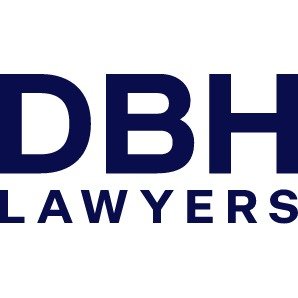Best Administrative Lawyers in Salisbury
Share your needs with us, get contacted by law firms.
Free. Takes 2 min.
List of the best lawyers in Salisbury, Australia
About Administrative Law in Salisbury, Australia
Administrative law in Salisbury, Australia pertains to the legal principles governing the administration and regulation of government agencies. This area of law ensures that governmental actions are conducted lawfully, fairly, and responsibly. In Salisbury, administrative law encompasses a wide variety of activities from immigration, social security, and taxation to planning and environmental regulation. The city, part of South Australia, falls under the jurisdiction of both state-level and federal administrative laws, each with its own guidelines and procedural requirements.
Why You May Need a Lawyer
There are several scenarios where individuals may require legal assistance in the field of administrative law. Some common situations include:
- Challenging decisions made by government agencies, such as visa denials or social security rulings.
- Navigating complex regulatory frameworks for business operations or environmental compliance.
- Seeking guidance on how to interact legally with local councils and government bodies.
- Filing for or defending against judicial reviews and appeals in administrative tribunals.
- Understanding rights and obligations under Freedom of Information requests.
Local Laws Overview
In Salisbury, administrative law is influenced by both state and federal legislation. Some key aspects to consider include:
- The Administrative Decisions (Judicial Review) Act 1977, which outlines the process for judicial review of Commonwealth administrative decisions.
- The Freedom of Information Act 1982, which allows public access to documents held by government bodies.
- The role of the South Australian Civil and Administrative Tribunal (SACAT), which handles disputes regarding administrative law matters at the state level.
- Local government regulations which might affect zoning, development, and community services in Salisbury.
Frequently Asked Questions
What is the process for challenging a government decision?
You typically need to apply for an internal review followed by an appeal to a relevant tribunal or court if necessary. Legal advice is recommended to navigate these processes.
How can I access information held by the government?
You can lodge a Freedom of Information request under the Freedom of Information Act 1982 to access documents.
Can I represent myself in administrative law proceedings?
While it's possible to represent yourself, the complexity of administrative law cases makes it advisable to seek legal representation.
What role does SACAT play in administrative law?
SACAT provides resolutions for various matters including housing, guardianship, and civil disputes, often serving as a first step for appeals.
What is a judicial review?
A judicial review is a court proceeding in which a judge reviews the lawfulness of a decision or action made by a government agency.
Are there costs involved in administrative law cases?
Yes, there are costs, which may include filing fees, legal representation fees, and other court-related expenses. Some individuals might qualify for legal aid.
What is the time limit for lodging an appeal on a government decision?
Time limits vary but are generally strict; it might be as short as 28 days from the date of the decision. It's important to seek advice promptly.
What types of decisions can be subject to administrative review?
Decisions subject to review generally involve matters like social security, immigration, taxation, and more, which have a significant impact on the individual.
Is mediation an option in administrative disputes?
Mediation can be an option and is often encouraged to resolve disputes without formal court proceedings.
What should I do if I'm facing discrimination from a government agency?
Contact an administrative law attorney or the relevant ombudsman for advice on lodging a formal complaint and potential legal actions.
Additional Resources
For further assistance, consider the following resources and organizations:
- SACAT (South Australian Civil and Administrative Tribunal) for tribunal guidance and dispute resolution.
- Ombudsman SA for complaints about government service issues.
- Law Society of South Australia for referrals to qualified administrative law attorneys.
- Community Legal Centres for free or low-cost legal advice and assistance.
Next Steps
If you believe you require legal assistance for an administrative law issue, consider the following steps:
- Determine the nature of your legal issue and the specific government decision in question.
- Gather all relevant documentation, including any correspondence with government bodies.
- Consult with a lawyer specializing in administrative law to evaluate your case and guide you on potential legal actions.
- Consider contacting SACAT or an ombudsman if your issue involves a state-level administrative decision.
- Plan for necessary legal expenses and explore options for legal aid if you qualify.
Lawzana helps you find the best lawyers and law firms in Salisbury through a curated and pre-screened list of qualified legal professionals. Our platform offers rankings and detailed profiles of attorneys and law firms, allowing you to compare based on practice areas, including Administrative, experience, and client feedback.
Each profile includes a description of the firm's areas of practice, client reviews, team members and partners, year of establishment, spoken languages, office locations, contact information, social media presence, and any published articles or resources. Most firms on our platform speak English and are experienced in both local and international legal matters.
Get a quote from top-rated law firms in Salisbury, Australia — quickly, securely, and without unnecessary hassle.
Disclaimer:
The information provided on this page is for general informational purposes only and does not constitute legal advice. While we strive to ensure the accuracy and relevance of the content, legal information may change over time, and interpretations of the law can vary. You should always consult with a qualified legal professional for advice specific to your situation.
We disclaim all liability for actions taken or not taken based on the content of this page. If you believe any information is incorrect or outdated, please contact us, and we will review and update it where appropriate.








